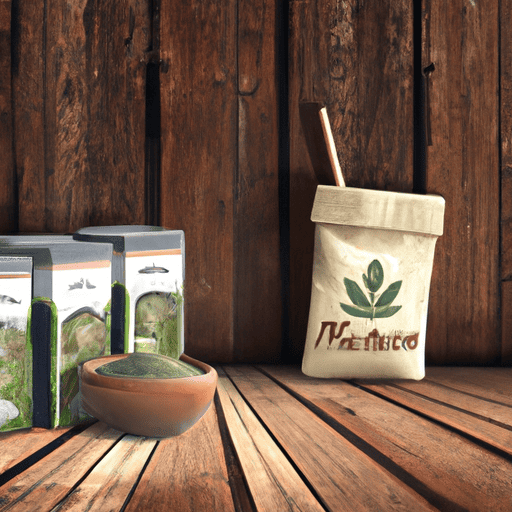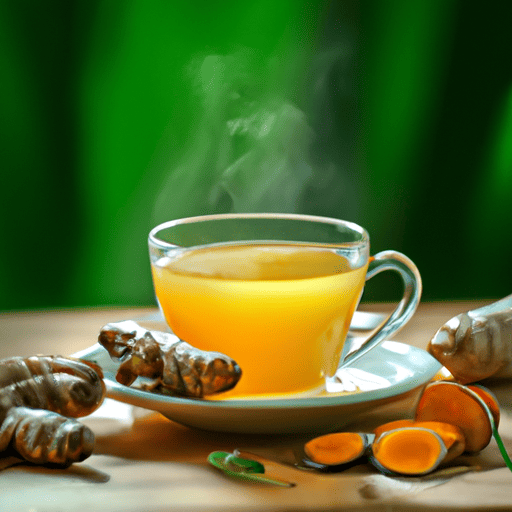Ashwagandha
How Does Ashwagandha Taste Bad? Masking Tips Inside

Have you ever tried ashwagandha and wondered why it tastes so bad? Well, we’ve been there too. But fear not, because we’re here to shed some light on this bitter experience.
Ashwagandha, an ancient herb known for its many health benefits, has a taste that can be quite off-putting. In this article, we’ll explore the natural compounds that contribute to its unpleasant taste, as well as the scientific reasons behind it.
So, let’s dive in and uncover the secrets behind ashwagandha’s not-so-pleasant flavor.
Key Takeaways
- Ashwagandha contains bioactive compounds such as withanolides, alkaloids, saponins, and flavonoids.
- The bitter taste of ashwagandha is due to the presence of withanolides, which have antioxidant, anti-inflammatory, and immune-modulating properties.
- Taste sensitivity to bitterness can vary among individuals, influenced by factors such as genetics and previous experiences.
- Traditional preparation methods, roasting, and flavor alternatives can help improve the taste of ashwagandha.
The Natural Compounds of Ashwagandha
The natural compounds of Ashwagandha contribute to its distinct taste. Ashwagandha contains a variety of bioactive components that give it both its unique flavor and its health benefits.

One of the main compounds found in Ashwagandha is called withanolides, which are responsible for its bitter taste. Withanolides are a group of steroidal lactones that have been extensively studied for their potential therapeutic effects. These compounds possess antioxidant, anti-inflammatory, and immune-modulating properties, making Ashwagandha a popular choice in traditional medicine.
In addition to withanolides, Ashwagandha also contains alkaloids, saponins, and flavonoids, all of which contribute to its overall taste profile. These natural compounds work synergistically to provide numerous health benefits, such as reducing stress, improving cognitive function, and boosting immune system function.
The Bitter Taste Explained
When it comes to the bitter taste of ashwagandha, there are two key points to consider.
First, ashwagandha contains natural compounds that contribute to its medicinal properties, including the bitter taste. These compounds, such as alkaloids and flavonoids, are believed to be responsible for the herb’s numerous health benefits.

Second, taste sensitivity varies among individuals, and some people may be more sensitive to bitterness than others, which could explain why ashwagandha’s taste is perceived as unpleasant by some.
Natural Medicinal Properties
To fully understand the bitter taste of ashwagandha, we explore its natural medicinal properties and how they contribute to our overall health. Ashwagandha, known as a powerful herb in natural medicine, has been used for centuries for its holistic healing properties. Here are three key ways in which ashwagandha’s natural medicinal properties benefit our health:
- Adaptogenic Effects: Ashwagandha supports our body’s ability to adapt to stress and promotes a balanced stress response. It helps to regulate cortisol levels, reducing the negative impact of stress on our physical and mental well-being.
- Anti-inflammatory Properties: Ashwagandha contains compounds with anti-inflammatory effects, helping to reduce inflammation in the body. This can alleviate symptoms of inflammatory conditions and promote a healthier immune response.
- Neuroprotective Benefits: The active compounds in ashwagandha have been found to support brain health and protect against neurodegenerative diseases. It may enhance memory, cognition, and overall brain function.
Understanding these natural medicinal properties of ashwagandha helps us appreciate the bitter taste as a reflection of its potent health benefits. Moving forward, let’s delve into the topic of sensitivity to bitterness and how it may affect our experience with ashwagandha.
Sensitivity to Bitterness
As we continue exploring the bitter taste of ashwagandha, it’s important to understand how often individuals may experience sensitivity to bitterness and the factors that contribute to this taste perception.

The perception of bitterness varies among individuals due to a combination of genetic and environmental factors. Some people have a heightened sensitivity to bitter tastes, while others may have a decreased sensitivity. This sensitivity is influenced by genetic variations in taste receptors, as well as previous experiences and cultural influences.
Taste perception is a complex process that involves the interaction of taste buds on the tongue with various compounds in food. Understanding the factors that contribute to sensitivity to bitterness can help us appreciate why ashwagandha’s bitter taste may be more pronounced for some individuals.
Now, let’s move on to discussing the pungent aroma of ashwagandha.
The Pungent Aroma of Ashwagandha
The strong, distinctive smell of ashwagandha can be overwhelming for many people. This aroma is attributed to the presence of terpenes, organic compounds responsible for the characteristic smell of plants. Ashwagandha contains various terpenes, including withanolides, which contribute to its pungent scent. These terpenes not only play a role in the plant’s defense mechanisms but also possess potential health benefits for humans.

Fermentation is another factor that can influence the aroma of ashwagandha. During the fermentation process, microbes break down complex compounds into simpler ones, leading to the production of new aromatic compounds. This can alter the overall aroma of ashwagandha and potentially improve its palatability.
Understanding the role of terpenes and the impact of fermentation can provide insights into the pungent aroma of ashwagandha and its potential effects on our senses.
The Role of Withanolides
Withanolides, a group of naturally occurring compounds found in ashwagandha, play a significant role in its taste and health benefits. These bioactive compounds contribute to the bitter and pungent taste of ashwagandha, making it unpleasant for some individuals.
However, they also possess numerous health benefits, including anti-inflammatory and antioxidant properties. Various extraction methods are used to obtain these withanolides, ensuring maximum potency and effectiveness in ashwagandha supplements.

Withanolides: Health Benefits
We have discovered numerous health benefits associated with the compound noun ‘withanolides’, found in ashwagandha. These bioactive compounds have been extensively studied for their potential therapeutic effects.
Here are some of the health benefits of withanolides:
- Reduced stress and anxiety: Withanolides have been found to possess adaptogenic properties, helping the body cope with stress and anxiety.
- Anti-inflammatory effects: Withanolides exhibit potent anti-inflammatory properties, which may help reduce inflammation in the body and alleviate symptoms of conditions like arthritis.
- Enhanced cognitive function: Studies have shown that withanolides can improve cognitive function and memory, making them beneficial for individuals experiencing cognitive decline or age-related memory loss.
It’s important to note that while withanolides offer numerous health benefits, they may also have potential side effects and interactions with certain medications. It’s recommended to consult with a healthcare professional for appropriate dosage recommendations and to assess any potential health risks before incorporating ashwagandha into your wellness routine.
Withanolides: Taste Impact
As we continue our exploration of ashwagandha’s taste, it’s important to consider the impact that withanolides, the compounds found in this herb, have on its flavor.

Withanolides are a group of naturally occurring compounds that are unique to ashwagandha. They’re responsible for many of the health benefits associated with this herb, but they also contribute to its distinct taste.
The taste preferences of individuals can vary greatly, and withanolides play a significant role in sensory perception. Some people may find the taste of ashwagandha bitter or unpleasant, while others may enjoy its earthy and slightly bitter flavor.
Understanding the role of withanolides in ashwagandha’s taste can help us better appreciate and incorporate this herb into our lives.
Withanolides: Extraction Methods
To fully understand the role of withanolides in ashwagandha’s taste, let’s delve into their extraction methods. Withanolides are bioactive compounds found in ashwagandha that are responsible for its various health benefits. The extraction process plays a crucial role in determining the concentration and quality of withanolides in the final product. Here are three key factors that affect the extraction efficiency and taste modulation of withanolides:

- Solvent choice: Different solvents, such as methanol, ethanol, and water, can be used to extract withanolides. The choice of solvent affects the yield and purity of the extracted compounds.
- Extraction techniques: Various methods like maceration, sonication, and supercritical fluid extraction are employed to extract withanolides. Each technique differs in terms of efficiency and the extent to which it influences the taste profile.
- Processing conditions: Factors such as temperature, time, and pH during the extraction process can impact the extraction efficiency and the subsequent taste of ashwagandha.
Understanding these extraction methods is crucial in determining how withanolides contribute to ashwagandha’s taste. Now, let’s explore the next aspect: the impact of alkaloids on taste.
The Impact of Alkaloids on Taste
Although alkaloids are known to affect taste, the impact of these compounds on the taste of ashwagandha remains a subject of interest and investigation. Alkaloids are a diverse group of naturally occurring compounds that can have a bitter taste. In the case of ashwagandha, alkaloids such as withanolides are believed to contribute to its unpleasant taste. However, other factors, such as the role of pH in taste perception and the impact of temperature on taste sensitivity, may also play a role.
To better understand the impact of alkaloids on the taste of ashwagandha, researchers are conducting studies to analyze the chemical composition of the herb and its interaction with taste receptors. By examining the presence and concentration of alkaloids in ashwagandha, scientists can gain insights into the taste profile of the herb and potentially find ways to mitigate its unpleasant taste while preserving its beneficial properties.
| Factors | Impact on Taste of Ashwagandha |
|---|---|
| pH | Can alter perception of taste |
| Temperature | Can affect taste sensitivity |
Understanding the impact of alkaloids on the taste of ashwagandha is crucial for improving its palatability and increasing its acceptance among consumers. Further research and development in this area may lead to the formulation of better-tasting ashwagandha products that retain the herb’s medicinal benefits.

The Contribution of Saponins to the Flavor
Saponins significantly impact the flavor of ashwagandha. These natural compounds interact with our taste buds, leading to the characteristic bitter taste that many people find unpleasant.
Here’s how saponins contribute to the flavor of ashwagandha:
- Bitterness: Saponins are known for their bitter taste, and ashwagandha contains a high concentration of these compounds. When consumed, saponins stimulate the taste buds responsible for detecting bitterness, resulting in the strong, bitter flavor of ashwagandha.
- Astringency: Saponins also have astringent properties, which can give ashwagandha a slightly drying and puckering sensation in the mouth. This adds to the overall unpleasant taste experience.
- Masking other flavors: The strong bitterness and astringency of saponins can overpower and mask other flavors present in ashwagandha, further contributing to its unpleasant taste.
Understanding the impact of saponins on ashwagandha’s flavor is crucial in comprehending why it tastes bad. However, it isn’t the only factor at play. Another significant contributor to ashwagandha’s taste is the presence of glycosides, which will be discussed in the following section.
The Significance of Glycosides in Ashwagandha’s Taste
Glycosides play a significant role in the taste of Ashwagandha, contributing to its unpleasant flavor. These compounds are responsible for the bitter and astringent taste experienced when consuming Ashwagandha.

Understanding the taste perception mechanism of glycosides can provide insights into why Ashwagandha tastes bad and potentially help in developing methods to mask or minimize its taste for improved palatability.
Role of Glycosides
To understand the significance of glycosides in Ashwagandha’s taste, we explored the role they play in contributing to its unpleasant flavor.
Glycosides are natural compounds found in many plants, including Ashwagandha. They’re responsible for the bitter taste that Ashwagandha possesses.
When consumed, glycosides interact with the taste buds on our tongues, triggering a bitter sensation. This interaction occurs because glycosides bind to specific receptors on the taste buds, stimulating a bitter taste perception.

The presence of glycosides in Ashwagandha is essential as it contributes to the overall bioactive profile of the herb. However, it’s the bitter taste of glycosides that makes Ashwagandha less palatable for some individuals.
Nonetheless, the health benefits of Ashwagandha outweigh its unpleasant taste, making it a valuable herb in traditional medicine.
Taste Perception Mechanism?
As we delve into the taste perception mechanism of Ashwagandha, it is important to understand how the presence of glycosides in the herb contributes to its unpleasant flavor. Glycosides are natural compounds found in many plants and are known to have a wide range of biological activities. In the case of Ashwagandha, certain glycosides are responsible for its bitter taste. These compounds stimulate taste receptors on our tongues, triggering a sensory taste experience that is often described as unpleasant or bitter. The table below provides a visual representation of how glycosides affect the taste perception mechanism in Ashwagandha:
| Glycosides | Taste Perception |
|---|---|
| Present | Unpleasant |
| Absent | Neutral |
| Increased | Intensified |
Understanding the taste perception mechanism of Ashwagandha helps us appreciate why it may not be the most enjoyable herb to consume. However, by exploring traditional preparation methods, we can find ways to mitigate its taste and still benefit from its numerous health properties.

The Traditional Preparation Methods
We often prepare ashwagandha using traditional methods that have been passed down through generations. These methods are rooted in ancient Ayurvedic practices and are designed to extract the medicinal properties of the herb while minimizing its unpleasant taste.
The traditional preparation methods include:
- Decoction: This involves boiling ashwagandha root in water to create a strong, concentrated liquid extract. The bitter taste of ashwagandha can be masked by adding other herbs or spices like ginger or cinnamon.
- Powdered form: Ashwagandha root is dried and ground into a fine powder. This powder can be mixed with honey, ghee, or milk to make it more palatable.
- Capsules or tablets: For those who find the taste unbearable, ashwagandha is also available in encapsulated or tablet forms. This allows for easy consumption without having to experience the taste directly.
The Effect of Processing on Taste
After exploring the traditional preparation methods, it’s important to consider how processing affects the taste of ashwagandha.
The process of preparing ashwagandha involves various steps, such as drying, grinding, and extraction. Each of these steps can have a significant impact on the final taste of the herb.

Processing effects can alter the chemical composition of ashwagandha, leading to changes in its taste perception. For example, the drying process can result in the loss of volatile compounds that contribute to the herb’s aroma and flavor. Similarly, grinding ashwagandha into a powder can expose more surface area, increasing the release of compounds that contribute to bitterness.
The Role of Roasting and Grinding
The roasting and grinding process plays a crucial role in determining the taste of ashwagandha.
The process of roasting the ashwagandha root before grinding it has several benefits. First, roasting helps to enhance the flavor profile of the herb by bringing out its natural aromas and reducing any bitter or unpleasant taste.
Second, roasting also helps to remove any moisture from the root, making it easier to grind into a fine powder.

This leads us to the grinding techniques used in ashwagandha processing. Grinding the roasted ashwagandha root into a powder ensures that it can be easily mixed into various formulations such as capsules, teas, or tinctures.
The grinding process also helps to break down the cell walls of the root, increasing its bioavailability and allowing for better absorption of its beneficial compounds.
The Influence of Extraction Techniques
During the extraction process, the bioactive compounds of ashwagandha are released and separated from the plant material. The choice of extraction technique plays a crucial role in determining the quality and efficacy of the final product. Various techniques can be used, each with its own advantages and disadvantages. To help you understand the differences, here is a comparison of three commonly used extraction techniques:
| Technique | Description | Impact of Temperature on Extraction |
|---|---|---|
| Maceration | Soaking the plant material in a solvent for a long time | Temperature has a minimal impact |
| Soxhlet Extraction | Continuous extraction using a heated solvent | Higher temperature increases yield |
| Supercritical CO2 | Using carbon dioxide under high pressure and temperature | Temperature affects extraction efficiency |
The Interaction With Taste Buds
Continuing our exploration of ashwagandha’s taste, let’s now delve into how it interacts with our taste buds.

Ashwagandha has a distinct sensory experience that can be described as bitter and earthy. When consumed, it interacts with our taste buds in the following ways:
- Bitterness: Ashwagandha contains compounds called withanolides, which contribute to its bitter taste. These compounds stimulate the taste receptors responsible for detecting bitterness on our tongues.
- Earthiness: Ashwagandha also has a unique earthy flavor that can be attributed to its natural compounds. This earthiness can be perceived as slightly sweet or nutty, adding depth to the overall taste experience.
- Individual taste preferences: Just like with any food or herb, people’s taste preferences can vary. Some individuals may find ashwagandha’s taste unpleasant, while others may enjoy its unique flavor profile.
Despite ashwagandha’s less-than-pleasant taste, many people still choose to incorporate it into their daily routine due to its numerous health benefits. Now, let’s explore why the benefits of ashwagandha outweigh its taste.
The Benefits Outweighing the Taste
Despite its unpleasant taste, we’ve found that the benefits of incorporating ashwagandha into our daily routine far outweigh the sensory experience.
The taste perception debate surrounding ashwagandha is a topic of discussion among many who’ve tried it. Some describe it as bitter and earthy, while others find it to be slightly sweet with a hint of spice. However, despite this divisive taste, people continue to consume ashwagandha for its numerous health benefits.

Ashwagandha is known to support stress reduction, improve cognitive function, boost immune system, and promote overall well-being.
For those who are sensitive to the taste, there are alternatives available. Ashwagandha can be mixed with honey, added to smoothies, or encapsulated for easier consumption. These flavor alternatives allow individuals to enjoy the benefits of ashwagandha without the unpleasant taste.
Frequently Asked Questions
How Long Has Ashwagandha Been Used in Traditional Medicine?
Ashwagandha has been used in traditional medicine for centuries. Its origins can be traced back to ancient Ayurvedic practices. This herb holds immense cultural significance and is known for its various health benefits.
Can Ashwagandha Be Mixed With Other Ingredients to Improve Its Taste?
When it comes to improving the taste of Ashwagandha, mixing it with other ingredients can be a great solution. Adding flavors like honey, cinnamon, or vanilla can help mask the bitter taste and make it more enjoyable to consume.

Are There Any Health Risks Associated With Consuming Ashwagandha?
There are potential health benefits to consuming ashwagandha, but it’s important to be aware of possible side effects. While it may taste bad, the potential benefits may outweigh the unpleasant taste.
Can the Taste of Ashwagandha Be Masked or Altered in Any Way?
We can definitely alter the taste of ashwagandha to make it more enjoyable. By adding flavors like honey, cinnamon, or vanilla, we can effectively mask the bitter taste and make it more palatable.
Is There a Recommended Dosage for Ashwagandha to Maximize Its Benefits?
There is a recommended dosage for ashwagandha to maximize its benefits. However, it’s important to be cautious of potential side effects. Finding the right balance is key for optimal results.
Conclusion
In conclusion, while the taste of ashwagandha may not be pleasant to some, its natural compounds, such as withanolides and alkaloids, play a crucial role in its medicinal benefits. The bitter taste and pungent aroma are indicators of its potency.

Roasting and grinding techniques, as well as extraction methods, can influence the taste. Despite its taste, the numerous health benefits of ashwagandha make it worth including in one’s wellness routine. It’s like a bitter but powerful elixir for overall well-being.
Justin is a seasoned author, coffee and tea enthusiast, and an essential member of the Cappuccino Oracle team. With a keen appreciation for the complexities of coffee, coffee alternatives, and tea, Justin has dedicated his professional career to exploring these realms and sharing his insights with readers worldwide.
Justin’s immersion in the world of coffee, coffee alternatives, and tea began at a young age, kindling a passion that extended beyond mere consumption. This love for these beverages led him to combine his talent for writing with his devotion to coffee and tea, bringing him to Cappuccino Oracle as a dedicated author.
Ashwagandha
Safe Adaptogen Drinks for a Healthy Pregnancy Guide

Here’s the scoop, folks: Are adaptogen drinks safe for pregnancy? We’ve got the lowdown for you.
When it comes to expectant mothers, it’s crucial to consider the potential risks and benefits of these trendy beverages. While adaptogen drinks may offer perks, there could be concerns during pregnancy.
But fear not! We’ve got safe alternatives and a handy tip: consult with a healthcare professional for personalized guidance.
Get ready to sip smart and make informed choices for you and your little one.

Key Takeaways
- Limited research on adaptogens’ safety during pregnancy.
- Certain adaptogens like licorice root and ashwagandha may have adverse effects and should be avoided during pregnancy.
- Adaptogen drinks may support improved well-being and stress management during pregnancy.
- It is important to consult with a healthcare provider before using adaptogens or consuming adaptogen drinks during pregnancy.
Understanding Adaptogens and Pregnancy
Understanding the effects of adaptogens on pregnancy is crucial for making informed decisions about their safety during this important time. Adaptogens are known for their ability to help the body adapt to stress and maintain hormonal balance. While some studies suggest that adaptogens may have positive effects on hormonal balance, there’s limited research on their safety during pregnancy.
It’s important to note that each adaptogen may have different effects on pregnancy, and individual responses can vary. Research on adaptogens and pregnancy safety is still ongoing, and it’s recommended to consult with a healthcare provider before using adaptogens during pregnancy.
Being aware of the potential risks and benefits can help expectant mothers make informed choices for their own well-being and that of their developing baby.
Potential Risks of Consuming Adaptogen Drinks During Pregnancy
We rarely encounter studies that provide definitive evidence on the potential risks of consuming adaptogen drinks during pregnancy. However, it’s important to consider the potential side effects and the impact they may have on fetal development.

While adaptogens are generally considered safe for most people, the limited research available suggests that certain adaptogens, such as licorice root and ashwagandha, may have adverse effects during pregnancy.
Licorice root, for example, contains a compound called glycyrrhizin, which has been associated with increased risk of preterm labor and developmental issues. Ashwagandha, on the other hand, has been linked to potential harm to the fetus and should be avoided during pregnancy.
It’s crucial for pregnant women to consult with their healthcare provider before consuming adaptogen drinks to ensure the safety of both mother and baby.
Benefits of Adaptogen Drinks for Expectant Mothers
Adaptogen drinks offer expectant mothers a range of potential benefits during pregnancy. These beverages are known for their ability to support improved well-being and stress management, which are crucial aspects of a healthy pregnancy. Pregnancy can bring about various physical and emotional changes, and adaptogen drinks may help alleviate some of the associated stress and discomfort.

Adaptogens are natural substances that aid the body in adapting to stress and promoting balance. By incorporating adaptogen drinks into their routine, expectant mothers may experience reduced feelings of anxiety, increased energy levels, and better overall mood.
It’s important, however, to consult with a healthcare professional before introducing adaptogen drinks into the pregnancy diet to ensure they’re safe and suitable for individual needs.
Safe Alternatives to Adaptogen Drinks During Pregnancy
During pregnancy, it’s important to explore safe alternatives to incorporate into our routine instead of adaptogen drinks. While adaptogen drinks may have potential side effects during pregnancy, there are plenty of adaptogen-free beverage options that can provide similar benefits.
Here are five alternatives to consider:

- Herbal teas: Choose caffeine-free herbal teas like chamomile, ginger, or peppermint for a soothing and hydrating option.
- Fruit-infused water: Infusing water with slices of fruit like lemon, cucumber, or berries can add flavor and hydration without the need for adaptogens.
- Coconut water: Packed with electrolytes, coconut water is a refreshing and natural choice to keep you hydrated.
- Freshly squeezed juices: Opt for freshly squeezed juices made from fruits and vegetables for a boost of vitamins and minerals.
- Sparkling water with a splash of fruit juice: If you crave some fizziness, try mixing sparkling water with a splash of your favorite fruit juice for a refreshing and flavorful drink.
Consultation With a Healthcare Professional for Personalized Advice
Before incorporating any new beverages into our pregnancy routine, it’s essential to consult with a healthcare professional for personalized advice. Pregnancy is a unique and delicate time, and it’s important to take a holistic approach to our health and well-being.
An experienced healthcare professional can provide guidance tailored to our specific needs and circumstances. They can help us navigate the vast array of alternative options available and determine which ones are safe and suitable for us during pregnancy. Consulting with a healthcare professional ensures that we receive evidence-based information and personalized recommendations that take into account any pre-existing medical conditions or medications we may be taking.
Their expertise will help us make informed decisions and prioritize the health and safety of ourselves and our unborn child.
Frequently Asked Questions
Can I Continue Consuming Adaptogen Drinks During Pregnancy if I Have Been Regularly Consuming Them Prior to Becoming Pregnant?
We need to consider the potential risks of continuing to consume adaptogen drinks during pregnancy, especially if we have been regularly consuming them prior to becoming pregnant. There may be safer alternatives for managing pregnancy symptoms.

Are There Any Specific Adaptogens That Are Considered Safe for Consumption During Pregnancy?
Based on our research, there are specific adaptogens that are considered safe for consumption during pregnancy. It’s important to consult with a healthcare professional to ensure safety and discuss individual circumstances.
Can Adaptogen Drinks Help With Common Pregnancy Symptoms Such as Morning Sickness and Fatigue?
Adaptogen drinks can potentially provide a natural remedy for common pregnancy symptoms like morning sickness and fatigue. They have been studied for their effectiveness in reducing these symptoms, but it’s important to consider safety during pregnancy.
Are Adaptogen Drinks Safe to Consume During All Stages of Pregnancy?
We need to consider the potential risks of consuming adaptogen drinks during pregnancy. It’s important to explore alternatives for managing pregnancy symptoms that are safe and supportive for both mom and baby.
Are There Any Potential Long-Term Effects on the Baby if I Consume Adaptogen Drinks During Pregnancy?
There may be potential risks associated with consuming adaptogen drinks during pregnancy, including potential effects on fetal development. It is important to consider the long-term impact on the baby before consuming these drinks.

Conclusion
In conclusion, while adaptogen drinks may offer potential benefits for expectant mothers, there are also potential risks associated with consuming them during pregnancy. It’s important for pregnant women to consult with a healthcare professional for personalized advice before incorporating adaptogen drinks into their diet.
There are safe alternatives available that can provide similar benefits without the potential risks. Making informed decisions about what to consume during pregnancy is as important as choosing the right path to take on a journey.
Justin is a seasoned author, coffee and tea enthusiast, and an essential member of the Cappuccino Oracle team. With a keen appreciation for the complexities of coffee, coffee alternatives, and tea, Justin has dedicated his professional career to exploring these realms and sharing his insights with readers worldwide.
Justin’s immersion in the world of coffee, coffee alternatives, and tea began at a young age, kindling a passion that extended beyond mere consumption. This love for these beverages led him to combine his talent for writing with his devotion to coffee and tea, bringing him to Cappuccino Oracle as a dedicated author.
Ashwagandha
How Does Tulsi Tea Benefit Your Body?

Are you seeking a natural way to boost your health and well-being? Look no further than Tulsi tea! With its numerous benefits, this herbal infusion is a powerhouse for our bodies.
From strengthening our immune system to reducing stress levels, Tulsi tea has it all. Not only does it improve digestion and support respiratory health, but it also enhances our skin health.
Join us as we explore the wonders of Tulsi tea and discover how it can serve our bodies.
Key Takeaways
- Tulsi tea strengthens the immune system and protects against infections and diseases.
- Tulsi tea promotes relaxation, improves mental well-being, and reduces anxiety.
- Tulsi tea aids in digestion, reduces digestive issues, and facilitates better nutrient absorption.
- Tulsi tea treats respiratory infections, fights against respiratory pathogens, and strengthens the respiratory system.
Boosts Immune System
One of the main benefits of Tulsi tea is that it strengthens our immune system. Tulsi, also known as Holy Basil, is packed with antioxidants and phytochemicals that help to boost our body’s natural defense against infections and diseases. Research has shown that the compounds found in Tulsi tea have antimicrobial, antiviral, and anti-inflammatory properties, which can help to strengthen our immune response and protect us from various illnesses.

Not only does Tulsi tea boost our immune system, but it also promotes cardiovascular health. Studies have indicated that Tulsi tea can help to reduce cholesterol levels and regulate blood pressure, which are important factors in maintaining a healthy heart. Additionally, Tulsi tea has been found to improve blood circulation and reduce the risk of blood clot formation, further supporting cardiovascular health.
Incorporating Tulsi tea into our daily routine can provide us with a natural and holistic way to enhance our immune system and promote cardiovascular well-being. By boosting our energy levels and supporting our overall health, Tulsi tea can help us to better serve others by keeping ourselves strong and resilient.
Reduces Stress Levels
After boosting our immune system and promoting cardiovascular health, Tulsi tea also plays a key role in reducing stress levels. Tulsi, also known as holy basil, has been used for centuries in Ayurvedic medicine for its calming and soothing properties. The tea contains compounds that promote relaxation and improve mental well-being, making it an excellent choice for those seeking stress relief.
To understand the impact of Tulsi tea on stress levels, let’s take a look at the following table:

| Benefits of Tulsi Tea for Reducing Stress Levels | Evidence |
|---|---|
| Promotes relaxation | Studies have shown that the active compounds in Tulsi tea have a calming effect on the body and mind. |
| Improves mental well-being | Consuming Tulsi tea has been associated with reduced anxiety and improved mood. |
As you can see, Tulsi tea offers tangible benefits when it comes to managing stress. By incorporating this herbal remedy into our daily routine, we can experience a greater sense of calm and overall well-being.
Improves Digestion
To continue our exploration of the benefits of Tulsi tea, let’s delve into how it improves digestion.
Tulsi tea promotes gut health by aiding in digestion and reducing digestive issues. The natural compounds found in Tulsi tea, such as eugenol and carvacrol, have been shown to have anti-inflammatory and antimicrobial properties that can help soothe the digestive system and reduce bloating and stomach discomfort.
Additionally, Tulsi tea contains certain enzymes that aid in the breakdown of food, facilitating better nutrient absorption. This can support weight loss efforts by improving metabolism and reducing cravings.

By promoting a healthy digestive system, Tulsi tea can help optimize overall health and well-being.
As we transition to the next section, let’s explore how Tulsi tea supports respiratory health.
Supports Respiratory Health
Moving on from improving digestion, Tulsi tea also provides support for our respiratory health.
Tulsi, also known as holy basil, has been used for centuries in Ayurvedic medicine to treat respiratory infections and promote lung function. Research suggests that Tulsi possesses antimicrobial properties that can help fight against respiratory pathogens, such as bacteria and viruses.

Additionally, Tulsi tea has been found to have bronchodilator effects, which can help relax the muscles in the airways and improve breathing.
By including Tulsi tea in our daily routine, we can strengthen our respiratory system and reduce the risk of respiratory infections.
Now, let’s explore how Tulsi tea enhances skin health.
Enhances Skin Health
Continuing with the benefits of Tulsi tea, we can also explore how it enhances our skin health.

Tulsi tea is known for its skin rejuvenation properties, making it a popular choice for those looking to maintain a youthful appearance. The antioxidants present in Tulsi tea help to fight against free radicals, which can cause premature aging and skin damage.
These antioxidants also help to reduce inflammation, which can contribute to skin conditions such as acne and eczema. Additionally, Tulsi tea contains essential vitamins and minerals that promote collagen production, improving the elasticity and firmness of the skin.
Regular consumption of Tulsi tea may result in a reduction of fine lines and wrinkles, giving the skin a smoother and more youthful appearance.
Frequently Asked Questions
Can Tulsi Tea Help With Weight Loss?
Tulsi tea benefits may include weight loss support, but it’s important to remember that maintaining a healthy weight involves a balanced diet and regular exercise. To incorporate tulsi tea into your daily routine, try enjoying a cup in the morning or as an afternoon pick-me-up.

Does Tulsi Tea Have Any Side Effects?
Are there any potential risks or allergic reactions associated with tulsi tea? It’s important to consider these factors before incorporating it into our daily routine. Let’s explore the possible side effects.
Can Tulsi Tea Be Consumed During Pregnancy?
During pregnancy, it is important to consider the impact of Tulsi tea on prenatal health and fetal development. We should be mindful of any potential effects it may have and consult with a healthcare professional for guidance.
Is Tulsi Tea Safe for Children?
Tulsi tea benefits for children include promoting a healthy immune system and providing antioxidants. However, it is important to consider allergies. Before giving tulsi tea to kids, consult with a healthcare professional.
Can Tulsi Tea Be Consumed With Other Medications or Supplements?
Tulsi tea’s interactions with prescription drugs and supplements should be considered. While it may offer potential benefits, there are also risks. It’s important to consult with a healthcare professional to ensure safety and effectiveness.

Conclusion
In conclusion, incorporating tulsi tea into your daily routine can have a multitude of benefits for your body. It strengthens the immune system, lowers stress levels, aids digestion, supports respiratory health, and promotes healthier skin.
Just like a soothing balm for the body, tulsi tea nourishes and nurtures, providing a holistic approach to wellness. So why not indulge in a comforting cup of tulsi tea and let its healing properties embrace you like a warm embrace on a cold winter’s day?
Justin is a seasoned author, coffee and tea enthusiast, and an essential member of the Cappuccino Oracle team. With a keen appreciation for the complexities of coffee, coffee alternatives, and tea, Justin has dedicated his professional career to exploring these realms and sharing his insights with readers worldwide.
Justin’s immersion in the world of coffee, coffee alternatives, and tea began at a young age, kindling a passion that extended beyond mere consumption. This love for these beverages led him to combine his talent for writing with his devotion to coffee and tea, bringing him to Cappuccino Oracle as a dedicated author.
Ashwagandha
How Does Elderberry Tea Benefit You?

Did you know that elderberry tea has been used for centuries to support our health and well-being? It’s true!
In fact, studies have shown that drinking elderberry tea can boost our immune system, relieve cold and flu symptoms, fight inflammation, support heart health, and promote skin health.
So, if you’re looking for a natural way to take care of yourself and serve others, grab a cup of elderberry tea and reap the benefits!
Key Takeaways
- Boosts immune system by enhancing its ability to fight off infections and illnesses
- Relieves cold and flu symptoms, reducing duration and severity
- Fights inflammation, reducing pain and improving digestion
- Supports heart health by improving cardiovascular function and reducing the risk of heart disease
Boosts Immune System
Elderberry tea offers multiple benefits for our health, specifically for our immune system and digestive health.

Firstly, elderberry tea strengthens our immune system by enhancing its ability to fight off infections and illnesses. This powerful tea contains antioxidants and vitamins that support the immune system’s function. The antioxidants in elderberry tea help reduce oxidative stress, which is caused by an imbalance of free radicals in the body. By reducing oxidative stress, elderberry tea helps protect our cells from damage and supports overall immune health.
Not only does elderberry tea boost our immune system, but it also improves digestion. The natural compounds found in elderberries have been shown to have anti-inflammatory and antimicrobial properties, which can help soothe and heal the digestive system. This can lead to improved digestion, reduced bloating, and better nutrient absorption.
Incorporating elderberry tea into our daily routine can provide numerous benefits for our immune system and digestive health. So, let’s brew a cup of this delicious tea and give our bodies the support they need to stay healthy and strong.
Relieves Cold and Flu Symptoms
When we’re battling cold and flu symptoms, elderberry tea can help alleviate them. Elderberry has long been used as a natural remedy in alternative medicine to relieve these common ailments. Research suggests that elderberry contains compounds that can inhibit the replication of viruses, including those responsible for colds and the flu. One study found that elderberry extract reduced the duration and severity of flu symptoms by stimulating the immune system. Another study showed that elderberry extract can help relieve cold symptoms, such as nasal congestion and coughing. These findings indicate that elderberry tea can be a beneficial addition to our arsenal of natural remedies for cold and flu relief.

Now, let’s explore how elderberry tea fights inflammation and promotes overall well-being.
Fights Inflammation
After relieving cold and flu symptoms, elderberry tea continues to be beneficial as it fights inflammation. The anti-inflammatory properties of elderberry tea have been shown to reduce pain and improve digestion.
Here are three ways elderberry tea can help combat inflammation:
- Reduces pain: Elderberry tea contains compounds that have been found to alleviate pain associated with inflammation. By reducing inflammation in the body, elderberry tea can help relieve joint pain and discomfort.
- Improves digestion: Inflammation in the digestive system can lead to issues such as bloating, gas, and indigestion. Elderberry tea has been shown to have a soothing effect on the digestive tract, reducing inflammation and promoting healthy digestion.
- Supports overall wellness: Chronic inflammation is linked to various health conditions, including heart disease, diabetes, and autoimmune disorders. By fighting inflammation, elderberry tea can help support overall wellness and reduce the risk of these conditions.
Incorporating elderberry tea into your daily routine can be a natural and enjoyable way to combat inflammation and promote a healthy body.

Supports Heart Health
Continuing our exploration of the benefits of elderberry tea, it supports heart health by improving cardiovascular function and reducing the risk of heart disease. Elderberry tea contains antioxidants and anti-inflammatory compounds that help protect the heart and blood vessels from damage caused by oxidative stress and inflammation.
To better understand the impact of elderberry tea on heart health, let’s take a look at the table below:
| Elderberry Tea Benefits for Heart Health |
|---|
| Improves cardiovascular function |
| Reduces risk of heart disease |
Studies have shown that elderberry tea can improve cardiovascular function by enhancing blood flow, reducing blood pressure, and promoting healthy cholesterol levels. Additionally, the antioxidants present in elderberries help prevent the formation of plaques in the arteries, reducing the risk of heart disease.
As we transition to the next section on ‘promotes skin health’, it’s important to note that elderberry tea not only supports heart health but also offers a wide range of benefits for overall well-being.

Promotes Skin Health
Now, let’s explore how elderberry tea contributes to promoting skin health.
Incorporating elderberry tea into your daily routine can have positive effects on your skin. Here are three ways elderberry tea can benefit your skin:
- Improves digestion: Elderberry tea contains antioxidants and fiber that can aid in digestion. By promoting a healthy digestive system, elderberry tea helps eliminate toxins from your body, which can lead to clearer and healthier skin.
- Reduces oxidative stress: The antioxidants found in elderberry tea help reduce oxidative stress caused by free radicals. This can prevent premature aging, such as wrinkles and fine lines, and promote a youthful and radiant complexion.
- Boosts collagen production: Elderberry tea is rich in vitamins A and C, which are essential for collagen production. Collagen is a protein that provides structure and elasticity to the skin. By boosting collagen production, elderberry tea can help improve skin firmness and reduce the appearance of sagging or dull skin.
Incorporating elderberry tea into your skincare routine can be a natural and effective way to promote healthy and glowing skin.
Frequently Asked Questions
Can Elderberry Tea Be Consumed by Pregnant Women?
During pregnancy, it is important to consider safety precautions when consuming elderberry tea. It is recommended to consult with a healthcare professional for alternatives that are safe and beneficial for pregnant women.

Is There a Recommended Dosage of Elderberry Tea for Children?
When it comes to elderberry tea, we must consider dosage recommendations and safety concerns, especially for children. It’s important to consult with a healthcare professional to ensure the right amount is consumed.
Can Elderberry Tea Interact With Any Medications?
When taking elderberry tea, it is important to consider potential interactions with medications, especially blood thinners. Some side effects may occur. It’s best to consult with a healthcare professional for personalized advice.
Does Elderberry Tea Help With Allergies?
Elderberry tea can boost our immune system, helping to alleviate cold symptoms. It’s a natural remedy for allergies as well. So, drinking elderberry tea can be a comforting and effective way to support our health.
How Long Should One Brew Elderberry Tea for Optimal Health Benefits?
When brewing elderberry tea for optimal health benefits, we should consider the brewing time and techniques. By following recommended guidelines, we can ensure that the tea releases its beneficial compounds and flavors.

Conclusion
In conclusion, incorporating elderberry tea into your daily routine can have numerous health benefits.
By boosting your immune system, relieving cold and flu symptoms, fighting inflammation, supporting heart health, and promoting skin health, elderberry tea becomes an essential addition to your wellness arsenal.
As the saying goes, ‘A cup of elderberry tea a day keeps the doctor away,’ so why not indulge in this delicious and beneficial beverage to maintain your overall well-being?
Justin is a seasoned author, coffee and tea enthusiast, and an essential member of the Cappuccino Oracle team. With a keen appreciation for the complexities of coffee, coffee alternatives, and tea, Justin has dedicated his professional career to exploring these realms and sharing his insights with readers worldwide.
Justin’s immersion in the world of coffee, coffee alternatives, and tea began at a young age, kindling a passion that extended beyond mere consumption. This love for these beverages led him to combine his talent for writing with his devotion to coffee and tea, bringing him to Cappuccino Oracle as a dedicated author.
-

 Americano4 weeks ago
Americano4 weeks agoHow to Make Americano With Moka Pot
-

 Americano2 weeks ago
Americano2 weeks agoHow to Make Korean Iced Americano
-

 Americano4 weeks ago
Americano4 weeks agoHow to Make Iced Americano With Instant Coffee
-

 Americano4 weeks ago
Americano4 weeks agoHow to Make Americano With Bialetti
-

 Americano4 weeks ago
Americano4 weeks agoHow to Make Dutch Bros Americano
-

 Americano6 days ago
Americano6 days agoHow to Make an Iced Americano With Nespresso
-

 Americano2 weeks ago
Americano2 weeks agoHow Many Shots of Espresso for 16 Oz Americano
-

 Americano4 weeks ago
Americano4 weeks agoHow to Make a Hazelnut Americano
















